Healthy Masculinity & Toxic Masculinity In Wakanda: An Intersectional Afrofuturist Perspective
Healthy Masculinity & Toxic Masculinity In Wakanda: An Intersectional Afrofuturist Perspective
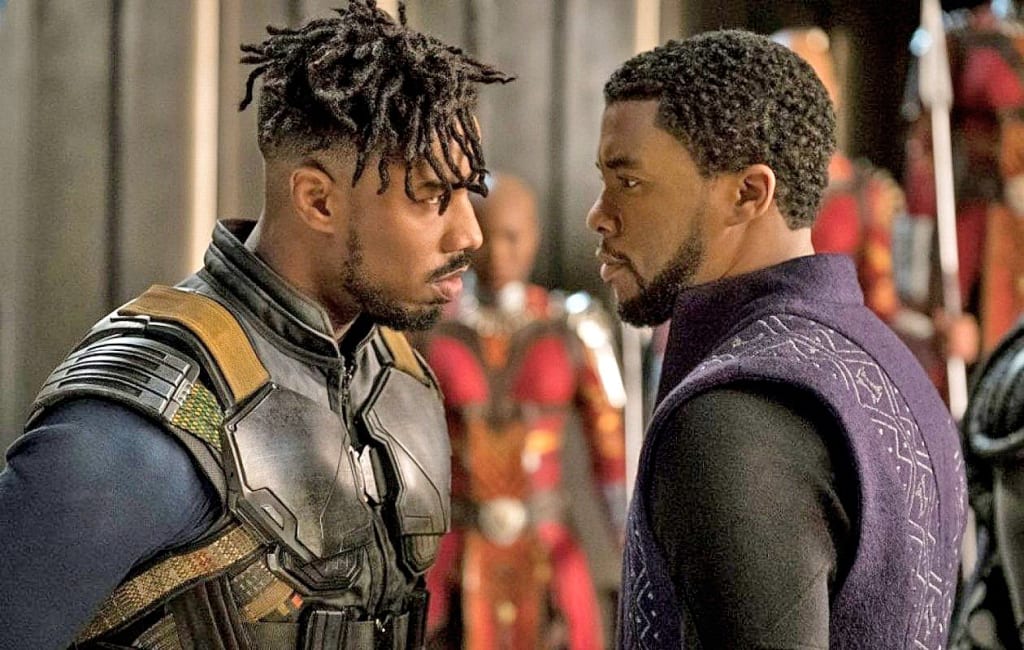
Afrofuturism is fast becoming the Harlem Renaissance of the 21st century. Ingrid LaFleur, who ran for mayor of Detroit on an Afrofuturist platform, defines Afrofuturism:
…a way of imagining possible futures through a black cultural lens… I see Afrofutrism as a way to encourage experimentation, reimagine identities, and activate liberation.
Intersectionality is another lens that comes from a black tradition, black feminism. Kimberlé Crenshaw coined the term “intersectional feminism” to address the overlap of identities and oppressions such as class, gender, sexuality, race, disability, etc. It challenged the middle-class, white feminist idea that a woman’s experience was universal, and that gender was the primary mode of oppression in women’s lives, often ignoring the struggles of working class women, and women of color.
Afrofuturism has become a frontier where we can envision how intersecting identities work, could work, or be ejected altogether in other worlds, whether in a dystopian or utopian context. I call this Intersectional Afrofuturism, and I invite the reader to look at the movie “Black Panther” through this lens. It is recommended to watch the movie first, there are spoilers galore! ~~~~~~~~~~~
Whilst Afrofuturist icons like Octavia Butler, Samuel Delany, Sun Ra, Lee "Scratch" Perry, George Clinton, Nnedi Okorafor, Tananarive Due, Nalo Hopkinson, Nisi Shawl, Ishmael Reed, Nichelle Nichols and even W.E.B. Dubois have been paving the way into the afrofuture for some time, the “Black Panther” movie phenomenon has finally ushered Afrofuturism into mainstream culture.
After much anticipation, “Black Panther” finally arrived to movie screens worldwide, smashing box office records, and creating a cultural impact possibly not seen since Alex Haley’s “Roots” aired on TV in 1977. Back then, it was the first time we had the atrocities and ongoing trauma of slavery be beamed into our living rooms in vivid technicolor. The ripples of “Roots” stay with us today, such as myriads of pop culture references to Kunta Kinte (like Kendrick Lamar’s “King Kunta”); a highly acclaimed 2016 modern remake of the series; and for sure, you will be hard pressed to find a black person named “Toby” anywhere.
“Black Panther” in lots of ways, is the diametric opposite of “Roots.” On one hand, “Roots” was a depiction of a horrific past where our cultures were beaten out of us, and showed how our ancestors were told they were ugly treated as subhuman property. It showed us mercilessly violated, enslaved and colonized by a European settler colonist plantocracy. “Black Panther” on the other hand, is a post-colonial, afrofuturist vision of an African nation untouched by slavery, colonialism, subjugation, European beauty standards, or willful underdevelopment through resource theft. Instead, Wakandans are self-determined and thriving world leaders in technology, and show us a futuristic world where black feminine power is honored alongside masculine power, black beauty is exalted without internalized racism, and ancestor reverence remains a strong tradition, helping to guide the Black Panther lineage. We’re also going to have a wave of black (and probably non-black!) children named Nakia, Shuri, Wakanda, T’challa, N’Jadaka and more, while even their children will still have a hard time finding a brotha named Toby.
This movie has inspired a global explosion of conversations, memes, creative responses, and think pieces much like this one, as anyone who engages social media is fully aware. It has also inspired political actions, celebrations of African heritage and beauty, and even curricula and education programs. Out of all the discussions, there is one that is probably the most controversial and often discussed, perhaps besides how kick-ass women are in the film. Namely, the themes of black liberation that are raised by N’Jadaka aka Erik Killmonger, and T’Challa, the King Of Wakanda, aka Black Panther.
Firstly, I have to say, Killmonger is possibly one of the most nuanced and complex anti-heroes we have had on the big screen in a long time. He drops some of the most potent quotes in the film, around issues of colonialism and cultural theft; black liberation as a diasporic event; and deep words that honor ancestral wisdom. Serious gems. He is quite the charismatic anti-hero.
Here’s the thing though. Killmonger is also the poster child for how toxic masculinity shows up in our liberation movements, and given a pass because he’s “down for the cause.” No matter how many black women they have abused in the name of “black liberation.” Him being charismatic and easy on the eyes also works in the favor of the seductiveness of this archetype.
Let’s remember that Killmonger:
a) Is trained by the CIA to destabilize countries and murder as many people as possible in the process. CIA dude straight up says “He’s one of us.” Killmonger proudly boasts of the sweeping carnage he wreaked in countries populated by black and brown people, while simultaneously talking about black liberation.
b) Burned sacred ancestral medicine fields to the ground when he finally got to Wakanda. He has now completely embodied the white supremacist, imperialist methodology he was trained to do. Infiltrate, destabilize, take over, and erase indigenous culture.
c) Let’s please also remember that every black woman that Killmonger came in contact with, he either killed or attacked. Including his lover, who he killed as unceremoniously as clipping his toenails. He even strangled an elder black woman. The most civil he was to a black woman was with his famous “Hey Auntie!” line to Queen Mother Ramonda. But who knows what he would have tried if he was within an arms-length of her at any point in the film.
And there’s more.
A huge part of N’Jadaka’s evolution into Erik Killmonger, is that he was an emotionally wounded, abandoned youth. He is tormented by the murder of his father Prince N’Jobu, by T’Challa’s father and then king, T’Chaka. He is driven by anger and vengeance from that point, and took many, many, many lives on his mission to get to Wakanda to not only kill T’Challa, but to also wreak misery on the royal family, and take the throne. Killmonger also planned to carry out his father’s plans to use Wakandan technology to arm black people across the world for an uprising that would create a new order of Black Supremacy. Erik Killmonger declares:
“The world’s going to start over, and we’re going to be on top!”
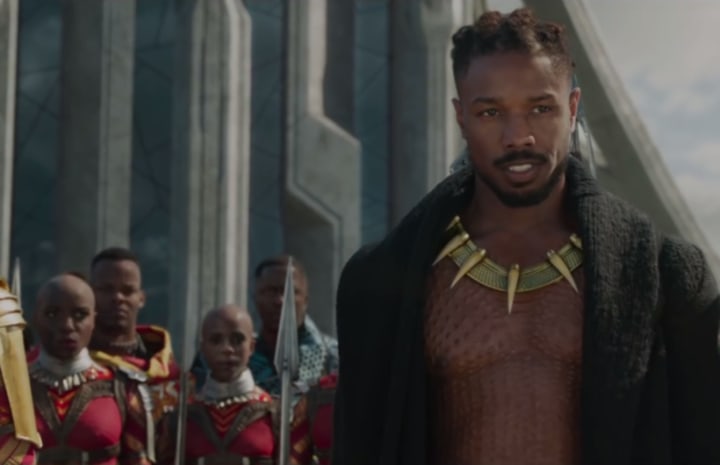
Erik Killmonger (Jordan) in Wakanda. (Marvel/Disney)
While his passion for liberating black people is admirable, his methodology is steeped in toxic masculinity. The need to dominate, control, be on top, as opposed to sharing power, is a driving force for him. He has an inability to process his difficult emotions, so he instead channels them into sweeping violence, which is another sad quality of toxic masculinity. And for real, even if he succeeded in arming black militias in cities around the world, as advanced as Wakandan technology is, a couple of small ships of weaponry against the largest armies and police forces in the world... I don’t think it would have been pretty. US police forces already have a sordid history of firebombing whole neighborhoods in retaliation for much less. (Google “MOVE bombing Philadelphia” if you don’t know.) The prison industrial complex would have probably tripled in size, and black folks most likely just be detained on sight. Black people would become public enemy number one worldwide, on a whole new level. However, if Killmonger had succeeded in creating and maintaining a black supremacy where black folks are on top, as opposed to just being FREE, that would demand a lot from the whole African Diaspora to now become oppressors. Apparently including the continued oppression of women. We would be watching our backs worldwide, fears of uprisings against us bubbling in the back of our minds constantly. Basically trading one prison for a cushier one. So yeah. Not my vision of black liberation.
I appreciated T’Challa’s vision of black liberation. It did take some loving encouragement from Nakia (his ex, and warrior spy for Wakanda) to move past the isolationist stance. Granted, the history of Africa being plundered, oppressed and colonized is more than enough reason to have an isolationist stance, but indeed, the diaspora could use the support of this advanced, powerful, and free African nation. The movie ends with Shuri (T’challa’s genius younger sister, Princess of Wakanda, responsible for inventing the incredible technology that Wakanda wields) landing one of their ships in Oakland, California, ready to school African Americans on Wakandan technology, which would give them an edge over any other group in the US. He also addresses the UN, saying “More connects us than separates us,” and “The wise build bridges, while the foolish build barriers.” The former statement is subtle and lofty sounding at the same time, but on a deeper level, it also is referencing oppressive power structures, blurring the lines of hierarchy, and honoring humanity on a fundamentally basic level. The latter statement is not only a reference to his new stance of releasing isolationism, but a clear dig at the Head Toxic Masculine Dude here in the real US. I say “real”, but lord knows it’s also felt surreal to most of us.
To explore more of the themes of toxic masculinity and healthy masculinity, let’s look at some of the qualities of healthy masculinity that T’challa exhibited, and make a comparison to N’Jadaka/Erik Killmonger.
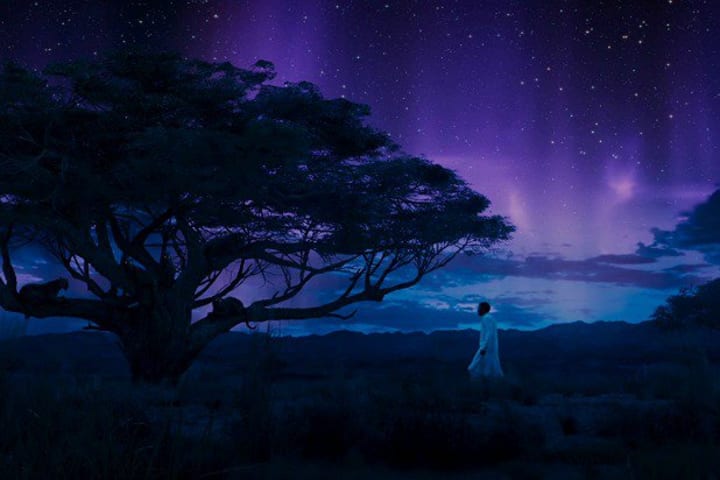
T'challa on the ancestral plane. (Marvel/Disney)
Accountability.
Accountability is the first tenet of healthy masculinity in my book. Not blaming women for what clothes they are wearing for our bad behavior. Not being complicit with the bad and abusive behavior of other men and protecting them under a toxic “men’s code.” The notion of being a “snitch” in African American culture, or being an “informah” in Jamaican culture carries much stigmatized weight, and at best, is a mechanism to prevent black men from being swept up into the prison industrial complex, a toxic white supremacist institution that already targets black and brown people. At worst, it protects people who are causing harm in our communities, enabling them to cause harm again and again. Healthy masculinity intercepts this, and holds ourselves and our brothers/masculine folks accountable for our actions.
T’challa is shocked to learn of the hidden legacy of N’Jobu’s murder by his father, T’Chaka. Granted, N’Jobu betrayed Wakanda, and attempted to strike at T’Chaka first, but it is still a shameful occurrence for the king to kill his own brother, and orphanize N’Jadaka (where N’Jadaka’s mama at doe?? A question for the movie writers, not a judgement on her character’s absence!). When T’challa drinks the sacred purple flower elixir that brings him back to life from the ritual combat with N’Jadaka/Killmonger, he encounters his father on the ancestral plane. They have a powerful conversation about this huge, uncovered secret.
T’Chaka: He was the truth I chose to omit.T’Challa: All of you were wrong. For turning your backs on the rest of the world. We let the fear of our discovery stop us from doing what is right. No more. I cannot stay here with you. I cannot rest while he sits on the throne. He’s a monster of our own making. I must take back the mountain. I must right this wrong.
Here, T’Challa holds his own father accountable, and holds himself accountable to do what must be done and undone. He literally comes back from the dead, fueled by the principle of accountability.
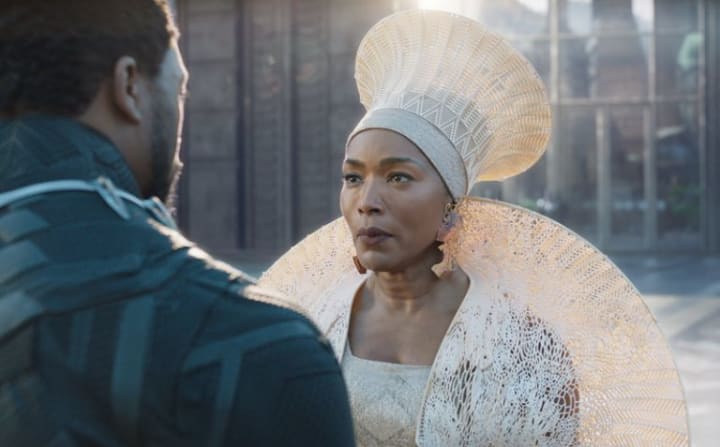
T'Challa (Boseman) consults Queen Mother Ramonda (Bassett). (Marvel/Disney)
Trusts, Respects, And Listens To Black Women.
This is another essential quality of a healthy black masculinity, in a patriarchal world that bombards us with messages that devalue women and femmes into subhuman objects. More than messages, there is literal oppressive legislation, the normalization of rape culture, and many other toxic symptoms of patriarchy and institutionalized sexism. Rising above this to advocate for, and value the lives of women and femmes is critical for all healthy masculinities to thrive.
T’challa clearly values, respects, and trusts the women around him. He literally puts his life in the hands of the Dora Milaje (the fierce all-female secret service/warriors who protect him). He has a playful connection with his little sister, Shuri, and his masculinity is not threatened by her vast technological knowledge that surpasses his own. He trusts and respects her expertise. He listens to Nakia- who is his ex! I mean, just sit with that for a sec. T’challa still values Nakia’s friendship, wisdom, strength and personhood, she does not become a devalued target for ire because they are no longer sexual (though by the end of the movie, it does look like things are heating up again!). He is vulnerable and open with her, and she helps him sort out how to move forward as a king and a man. Lastly, he sees Queen Mother Ramonda as his esteemed royal elder, and he seeks and respects her counsel as well. In his eyes, she is the senior monarch. In contrast, as already mentioned, Killmonger’s relationship with women is not valuing them or their lives.
It is worthy to note that in the comics, there are some lesbian relationships amongst the Dora Milaje (“World Of Wakanda” written by Roxane Gay and Yona Harvey- the first two black women to author a Black Panther comic series). Hopefully this may be explored in the 4-hour directors cut that is rumored to be on the anticipated DVD when it is released! I guess there weren’t really any very developed romances in the movie, T’Challa and Nakia came the closest. I mention this, because another part of healthy masculinity for cisgendered straight men is to respect the lives of our LGBTQ family. And T’Challa trusts his life being in the hands of queer black women, and supports them being powerful, respected human beings.
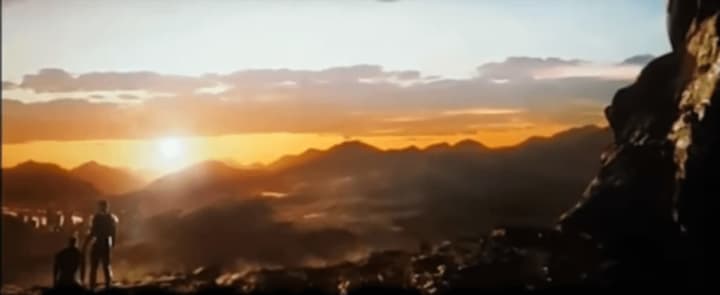
The Wakandan Sunset Scene. (Marvel/Disney)
Empathy.
I’m going to stop trying to grade these qualities, because they are all essential to healthy masculinity. I will say that one of the saddest things for boys, men and masculine folks, is that having empathy is so culturally devalued. We are supposed to only be tough, impenetrable, heterosexual, cisgendered, able-bodied, rugged individuals, and not be able to empathize with the struggles and humanity of women and LGBTQ folks. Our high school football coaches teach us to exploit and target the injury of a limping rival quarterback. Win by any means necessary, trample over others. The only thing that is important, is to SCORE! A lot of us take this mindset into our off-field lives, and even use the same lingo. If you are a heterosexual young man (and even if you aren’t straight, the pressure in high school is enormous on all boys), you are expected to prove your manhood by finding a girl and SCORING! By any means necessary. Keep pushing past verbal and non-verbal cues to get to “home base.” We are taught that our own pleasure, urges, and social status is more important than the humanity and agency of girls and women, and masculine peer pressure tends to reinforce this. Toxic masculine rites of passage also include gang initiations, where young men must prove their allegiance to the gang by committing murder or some heinous violation to another human being. Fraternities also have toxic masculine rites of passage that perpetuate rape culture, such as the infamously despicable "frat rodeo" (Major, major, major rape trigger warning for that one if you are not familiar. Those two words together should be enough information. I'm actually not going to hyperlink it. Absolutely inhumane). Also, we know that the overwhelming majority of mass shootings are done by white boys and men in this country. On one hand, this feels like an issue that dates back to the very first mass shootings in this country, which started when Europeans landed here and started massacring Native Americans. It also dates back to the complete lack of empathy that had to be present in order for some white men to engage in the atrocity known as the enslavement of Africans. These phenomena are also morbidly tied up with a colonial entitlement to land and free labor (That’s a whole other article). But on the other hand, more immediately relevant, is that whatever the race of the shooter (some, not many, aren’t white), 97% of the shooters are male. Our society continues to dance around this phenomenon, say it’s about mental health, say it’s about guns, say it’s about video games, say they were misunderstood (if they were white), say they were savages, terrorists, thugs (if they weren’t white), etc, etc. Very few are willing to talk about the glaring fact that this is about a crisis in masculinity.
Before engaging in ritual combat, Erik Killmonger proudly declares to T’Challa:
“I lived my entire life waiting for this moment. I trained, I lied, I killed just to get here. I killed in America, Afghanistan, Iraq… I took life from my own brothers and sisters right here on this continent! And all this death, just so I could kill you!”
Whew. That’s a lot of killing. He is clearly very proud of snuffing out numerous human lives. Doesn’t matter if they are white, black or brown. Or his lover. He’s killin ‘em.
T’Challa on the other hand, does all he can to preserve life. Even if he is in ritual combat. When challenged by M’Baku for the throne (M’Baku is the scene-stealing leader of the Jabari mountain tribe), T’Challa spares M’Baku’s life, even though he is not only entitled to, but expected to kill his opponent if victorious. T’Challa subverts a long-standing violent tradition in doing so, and is confident enough in his leadership and masculinity to make this empathetic choice, and allows M’Baku to live. This action arguably saves T’Challa’s life further on down the road, when M’Baku honors the fact that T’Challa spared his life, by safeguarding the critically injured and comatose T’Challa.
After the final fight with Killmonger, T’Challa strikes a potentially fatal blow to his opponent, a blow that will be truly fatal once the spearhead is removed from his chest. T’Challa not only offers to help Killmonger achieve his childhood dream of seeing a Wakandan sunset, but also offers to help heal him. He displays empathy to the man who almost killed him; killed one of his beloved Dora Milaje; put Wakanda and many others around the world at risk; and burned sacred ancestral medicine land. One of the most potent dialogues in the movie ensues:
T’Challa: Maybe we can still heal you.Killmonger: Why? So you can lock me up? Nah. Bury me in the ocean with my ancestors that jumped from the ships. Because they knew death was better than bondage.
And with that, Killmonger erases all chance of healing, removes the spearhead from his own chest, and dies. I am of the mindset that T’Challa meant a deeper, more holistic healing than simply repairing Killmonger’s body. I envisioned a healing that got to the root of the abandonment, the betrayal, the killing rage, the wounded little N’Jadaka inside. A restorative justice and transformational healing process that would include T’Challa being accountable for the murderous actions of his father, and everything be done to help truly rehabilitate a healed N’Jadaka into Wakandan society. Maybe, that is another Wakandan / Marvel universe.
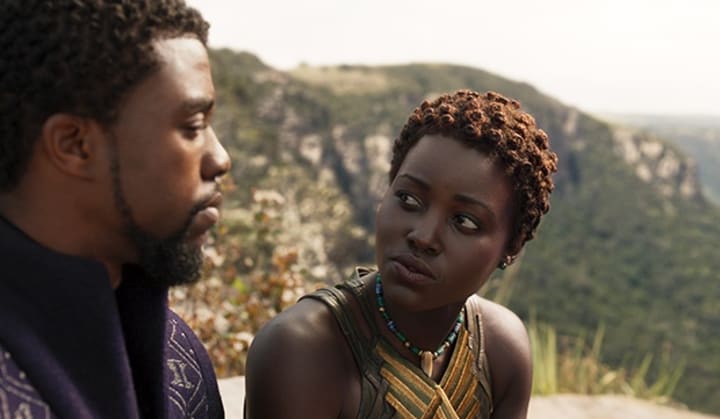
T'Challa (Boseman) opens up to Nakia (N'yongo). (Marvel/Disney)
In Touch With Feelings / Emotional Intelligence.
One of the most toxic and emotionally impairing messages boys and masculine folks receive, is “boys don’t cry.” Patriarchy devalues anything that has been declared feminine, and absurdly, even though all human beings have feelings and emotions, patriarchy has relegated emotional expressivity to the feminine realm. Hence, many boys learn that the only permissible feelings to display are happiness and anger. Not sadness, and definitely not fear. It can also be construed as “girly” to express concern, empathy and nurturing feelings for others. The result? Our natural feelings are bottled up until they explode. Explode into mass shootings. Explode into abuse. And, also explode into self-abuse and serious mental health issues. Issues such as substance abuse, used to numb the unmanageable and taboo feelings. Issues such as depression. Suicide rates for boys and men are 4 times higher than that for girls and women. 79% of suicide victims in the USA are male. Which is exacerbated by the fact that depression is often not treated, because going to therapy is also feminized, since it requires engaging that taboo established by patriarchy- talking about all of our feelings.
A quick internet dictionary search defines emotional intelligence as such: “the capacity to be aware of, control, and express one's emotions, and to handle interpersonal relationships judiciously and empathetically.” We see T’Challa, a powerful superhero and king of Wakanda be emotionally vulnerable with Nakia, Queen Ramonda, and also his dad T’Chaka in the ancestral realm. He even weeps in some interactions. This is inseparable from his strength. Because he is true to his authentic emotions, he can be the level-headed leader of a great nation; be able to have diplomatic and humane interactions, even with his enemies (while defending himself, and using physical prowess only when necessary); he can have healthy relationships (with himself, and others); and essentially just have a healthier life overall. He can still express anger, but does so constructively, not destructively. The angriest we see him is possibly when he addresses his father on the ancestral plane, and then takes responsibility for T’Chaka’s actions that in turn created the Killmonger we have come to know.
We see Killmonger weep too, which makes me feel like getting to Wakanda actually started his healing process. Sadly, a process he didn’t allow himself to complete. The voice of the hurt and vengeful little N’Jadaka inside him blotted out all other feelings. He only wanted to express happiness and anger, and he evolved into someone who got happiness from transforming his anger into violence. Violence becomes the solution to conflict, including finally, violence on himself. His bottled-up feelings being channeled into anger and revenge almost completely sabotaged his dream to simply see a Wakandan sunset. He arrived, and instead of chillin out and getting to know the family he never had, he just started destroying everything. It was a beautiful moment when T’Challa helped him realize his childhood sunset dream before his demise.
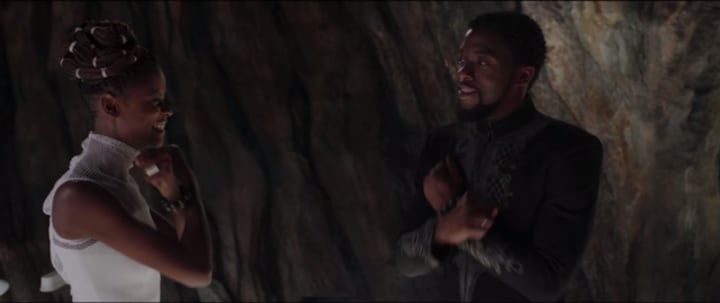
Shuri (Wright) and T'Challa (Boseman) greet each other with the Wakandan salute. (Marvel/Disney)
Shares Power.
Under patriarchy, dominance and control have become hallmarks of expressing masculinity. It has to be that way, in order to maintain patriarchy. Cisgendered straight men are expected to dominate women and LGBTQ folks. Which sounds exhausting to me. Same reason I’m not excited by Black Supremacy. I don’t have time or energy to be trying to stay on top of and controlling everybody, or maintaining some unhealthy superiority complex. And my intact empathy won’t allow it. I’m not saying I don’t still have sexism and trans/homophobia to unlearn (that’s not a journey with a finish line, as far as I’m concerned), but I am definitely not actively trying to put down people based on gender and sexuality. This expectation to be perma-King Of Hill leads to male fragility. Because, if you are inherently “better” than those who you perceive as below you, then you meet one of “them” who are smarter than you, faster than you, stronger than you, or maybe they flawlessly point out the flaws of your superiority complex… meltdown!
For example, street harassment is more of an expression of power than flirtation. It says “Hey! I don’t know this woman, but I’m going to talk about her body parts in a disrespectful way, invade her space whenever I want, and no one will do anything about it. Including other men walking by. Yay, patriarchy!” These same men would flip out if they heard someone say the same thing to their mom. They know it’s disrespectful. But if rejected, then that fragile masculinity expecting to be in control can snap, and they may possibly respond with a highly charged emotional response, ranging anywhere from verbal to physical abuse. But somehow, highly charged emotional expression is still considered feminine. Hmm. (*see: In Touch With Feelings / Emotional Intelligence).
T’Challa is secure enough in his masculinity to not need to dominate others to feel “manly.” That is not the brand of masculinity he subscribes to. He is surrounded by powerful women, and he is comfortable with that. He sees the Queen Mother Ramonda as his chief counsel, and senior royalty above him in many ways. He is not threatened by the brilliance, physical prowess, or agency of the women around him. In fact, it seems like the opposite, being surrounded by powerful women is actually his way of life that helps keep him calm knowing he has so much wise and formidable back up.
Black feminine power shines brightly alongside black masculine power in Wakanda, in ways we haven’t seen before. When Shuri was introduced as the teasing younger sister, I half expected that to be the beginning and end of her character development. Perhaps get into trouble and need saving before the movie is over. Which is usually how it goes in the action/superhero movie genre. So when she turns out to be a scene stealing, well-developed character AND the chief architect of all of Wakanda’s technological wonders AND someone who can jump into battle and hold her own, I was so pleasantly surprised. From the Dora Milaje, to Nakia, to Queen Ramonda and Shuri, we are shown powerful self-determined black women who are considered experts in their fields, and are well respected by Wakandan men. Also seeing beautiful dark skinned black women in these powerful roles was another triumph, taking the images of how black beauty and female power are depicted in Hollywood to a whole new vibranium-powered level.
T'challa has power, but he is possibly the most understated man in the movie. Well, when not running around as the Black Panther anyway. But even in that, he chose the most discreet and understated Black Panther necklace. He has a modesty with his power, he does not see it as a vehicle to aggrandize himself, it is for the betterment of Wakanda, and now, the world. Killmonger by contrast, does everything to seize power so he can execute an agenda rooted in his own pain, his lust for satiating his need for revenge, and to satisfy his ego-driven notions. It’s about him. The camera subtly shows him in the flashier Black Panther necklace as a nod to this truth. He even sounds like he regresses into being a petulant child N’Jadaka when he addresses T’Challa:
“I want the throne.”“I want your weapons, your secrets. They are mine now.”
Want, want, want! Mine, mine, mine!! How many of us have seen children stamp their feet and try to establish and assert power with these words? His relationship to power comes from a self-centered and wounded boy place, and his “foot stamping” manifests as violence and death. He needs to be on top in order to feel whole. He is not interested in the abolition of oppressive structures, he wants to use his power to create a new one. Possibly one of the more egregious actions he committed in Wakanda, was strangling an elder woman who questioned him burning down the sacred purple flower fields. He then burned the traditional medicine. Complete abuse of power, against our elders, women, and sacred indigenous tradition. His motivation for burning the medicine was also self-centered, he wanted to ensure there wouldn’t be another Black Panther after him. Aspirations of dictator for life, perhaps? In any case, he was clearly not willing to share power with anyone, regardless of gender.
~~~~~~~~~~~~~~~~~~~~~~~~~~~~~~~~~~~~~~~~~~~~~
I feel that T’challa and Wakanda show us models of admirable power structures (could have some improvements, but better than most places in the real world!). In a heavily colonized and racialized world, generations of us non-Wakandan black folk have seen freedom through the lens of power, capitalism, patriarchy and institutionalized racism. On the plantation, freedom looked like being a white man who could sit in a big house on a hill with enslaved humans bent to his will. Freedom looked like being able to be a white man who could violate women on a whim without repercussions. Freedom looked like making bank on the backs of oppressed masses. In short, freedom looked like embodying the oppressor. It took warrior ancestors like Nanny Of The Maroons and Harriet Tubman to create a new paradigm of freedom outside of the white supremacist model that their fellow enslaved Africans were trapped in. They escaped, and formed their own Wakandas in the hills. Or in the swamps. Anywhere defensible and harder to locate. Like Wakandans, they used technology that was unknown to the colonizer plantocracy, like transmitting messages via drums to organize rebellions, becoming master herbalists with the plants around them, and being the first people in the west to use guerrilla warfare. In Jamaica, the British would march into the hills in single file, wearing bright red coats. Maroon scouts would see them from miles away, and sound the alert with abeng horns. Warriors would don camouflage made of medicinal plants, earth and bark, and lay in wait for the approaching British marching straight into an ambush (it is ascertained that “ambush” is actually a Maroon derived word that literally means “I am a bush”). The British would be completely surrounded and not even know it. The Maroons would slaughter them, and take their weaponry. They would spare just one British soldier, who would run back to his superiors to inform them that the hills are haunted by African magic that makes the very trees and earth come to life and kill everyone.
Maroons shared the power of freedom with hundreds, it wasn’t a self-centered ego project. To this day, there are sovereign Maroon towns in Jamaica; Quilombo societies in Brazil; and the indigenous African cultures continue to thrive among the Gullah/Geechee people in places like the Sea Islands, and throughout the south of the USA. They are our real life historical and present day models of forming our own self-sustaining societies outside of oppression from external forces. They are models for preserving culture, and using indigenous technology. They even had warrior women icons.
In closing, I will share some thoughts and curiosity I have about Wakanda. What would the rites of passage look like there for children? What would transition boys to manhood? Girls to womanhood? How about rites of passage for children who are gender non-conforming, trans, or have no gender at all, as many indigenous societies have? Would their rites of passage include the principles of accountability, empathy, gender equity, emotional intelligence and sharing power? What would restorative justice and transformative healing circles look like?
May we men and masculine folks find our way to embodying these healthy masculine qualities, and may we take the lessons of our Maroon ancestors and afrofuturist societies like Wakanda to create our own healing spaces, and our own liberation. A liberation that liberates us all, not just a chosen few. Ase’.
Richard Wright, MA is a Jamaican New Yorker who lives in Florida.He is a bystander intervention specialist, teaching artist, visual artist, relationship coach, dj and intersectional afrofuturist writer working on getting his first novel published.He is also an author, with a piece published in the new anthology,“Ask: Building Consent Culture,” edited by Kitty Stryker. https://www.lightningbolt.vision/richardwright-teaching-boys-consent-culture/About the Creator
Richard Wright, MA
Richard has a Masters in Expressive Arts Therapy; trained with MenCanStopRape; and facilitates healthy masculinity / consent culture workshops. He DJs, paints, and writes afrofuturist fiction too. For more: www.richardmwright.com

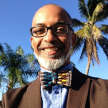
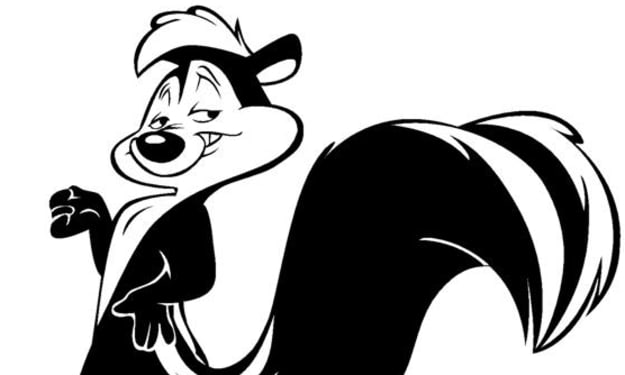



Comments (1)
I would like to hear this author on Wakanda Forever.